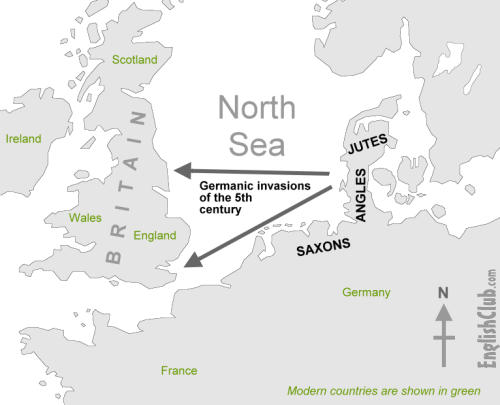
Probably the number one complaint about reading Shakespeare is that it doesn't always read like "normal" English. It's a natural and legitimate accusation. Shakespeare wrote for an audience over 400 years ago.
The history of the English language really started with the arrival of three Germanic tribes who invaded Britain during the 5th century AD. These tribes, the Angles, the Saxons and the Jutes, crossed the North Sea from what today is Denmark and northern Germany.

To read more, click HERE
Here are some of the most popular Shakespeare phrases in common use today:
To learn more, click HERE
For many, language is the biggest barrier in understanding Shakespeare. Perfectly competent performers can be paralysed with fear when they see bizarre words like “Methinks” and “Peradventure” – something I call Shakespearaphobia.
As a way of trying to counter this natural anxiety, I often begin by telling new students or performers that speaking Shakespeare aloud isn’t like learning a new language –it’s more like listening to a strong accent and your ear soon adjusts to the new dialect. Very soon you are able to understand most of what is said.
To read the modern translations of the top 10 most common Shakespearian words, READ MORE